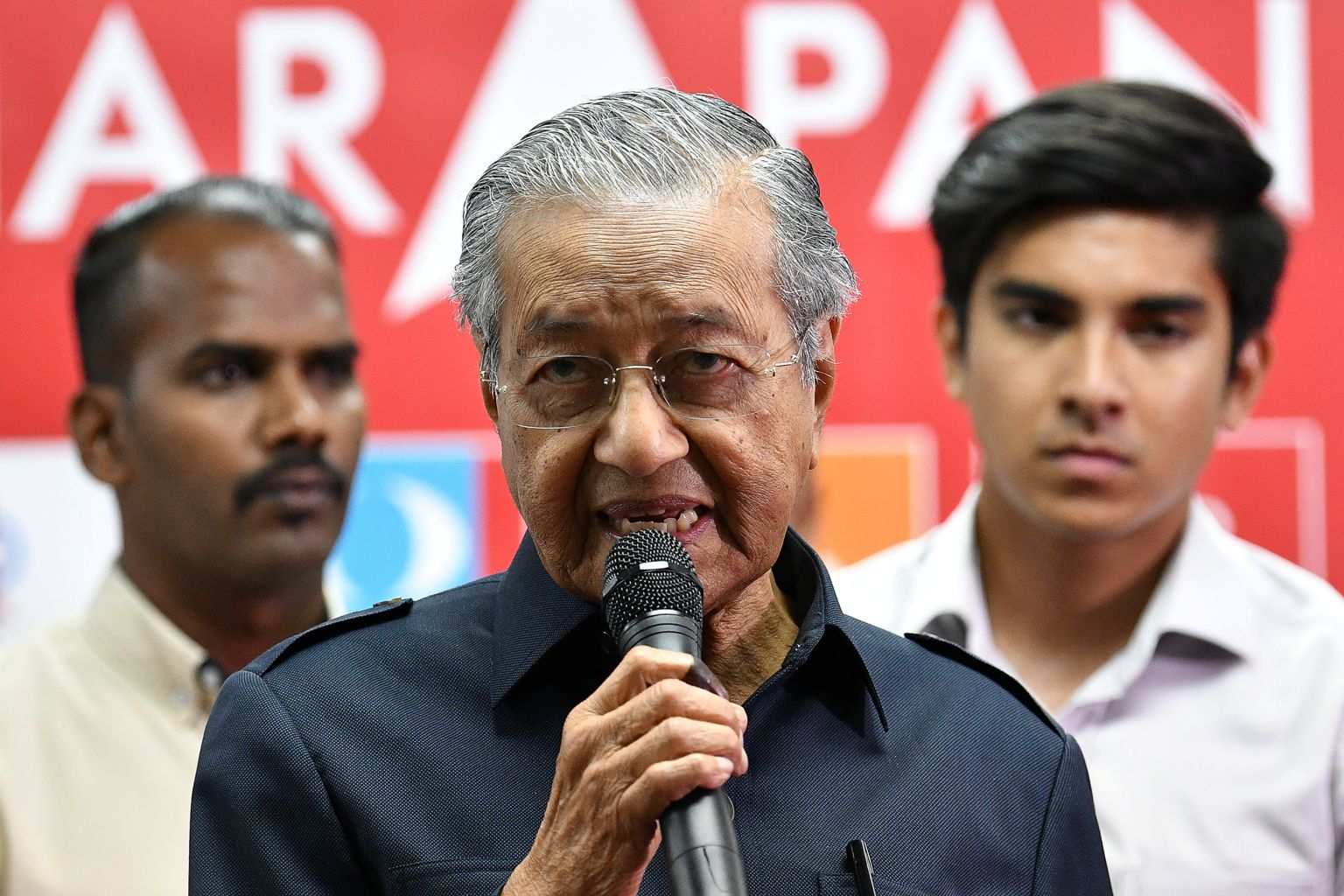Mahathir says anti-fake news law to get 'proper' definition; Malaysia has sufficient revenue to remove GST
Sign up now: Get insights on the biggest stories in Malaysia

Newly elected Malaysian PM Mahathir Mohamad said the country has sufficient revenue to abolish the GST, on May 13, 2018.
PHOTO: REUTERS
KUALA LUMPUR (AFP, REUTERS) - New Malaysian Prime Minister Mahathir Mohamad vowed Sunday (May 13) to review a controversial law against "fake news" hurriedly passed before the elections and seen as aimed at critics of his scandal-tainted predecessor.
He also said the country has sufficient revenue to remove the unpopular goods and services tax (GST), state news agency Bernama reported.
The new government vowed to abolish the consumption tax within the first 100 days of being in power.
Tun Dr Mahathir said that the anti-fake news law will be given "proper" definitions so that media and public are clear on what is fake.
"Even though we support freedom of press and freedom of speech, there are limits," Dr Mahathir said in a live telecast on state TV.
Abolishing the anti-fake news law was one of Dr Mahathir's campaign promises, but his latest comments point to a re-defining of the controversial law, rather than removing it altogether.
"The fake news law will be given a new definition so that the public and media outlets will know what is fake news and what is not fake," Mahathir said.
Former prime minister Najib Razak's government approved the Anti-Fake News 2018 bill last month, which set out fines of up to 500,000 ringgit (S$169,130) and a maximum six years in jail for violators.
Former prime minister Najib Razak's government approved the Anti-Fake News 2018 bill last month, which set out fines of up to 500,000 ringgit (S$169,130) and a maximum six years in jail for violators.
Dr Mahathir himself was criticised for clamping down on the media during his previous 22 years as premier. He used used security laws to put his political opponents behind bars and his critics say he restricted free speech and persecuted political opponents.
But he said in his speech Sunday his government would not restrict the press even if they came up with news the government found uncomfortable.
However the 92-year-old - the world's oldest elected leader - added that "action" would be taken if false news was disseminated with the intention to cause chaos.
"Even though we support the concept of freedom of the press and freedom of speech, everything has a limit," he said.
The law has so far been used to convict one person: a Danish man who was jailed for a week for accusing emergency services of responding slowly after a Palestinian Hamas member was gunned down in Kuala Lumpur in April.
Dr Mahathir himself was probed during the election campaign for allegedly spreading fake news after claiming that a plane he was supposed to take may have been sabotaged.
Malaysia ranks 145th out of 180 countries in the 2018 World Press Freedom Index, with number one being the freest.
However the 92-year-old - the world's oldest elected leader - added that "action" would be taken if false news was disseminated with the intention to cause chaos.
"Even though we support the concept of freedom of the press and freedom of speech, everything has a limit," he said.
The law has so far been used to convict one person: a Danish man who was jailed for a week for accusing emergency services of responding slowly after a Palestinian Hamas member was gunned down in Kuala Lumpur in April.
Dr Mahathir himself was probed during the election campaign for allegedly spreading fake news after claiming that a plane he was supposed to take may have been sabotaged.
Malaysia ranks 145th out of 180 countries in the 2018 World Press Freedom Index, with number one being the freest.
The current law defines fake news as "news, information, data and reports which is or are wholly or partly false" and includes features, visuals and audio recordings.
It covers digital publications and social media and will apply to offenders who maliciously spread "fake news" inside and outside Malaysia, including foreigners, if Malaysia or a Malaysian citizen were affected.
Other countries in South-east Asia, including Singapore and the Philippines, are considering how to tackle "fake news" but human rights activists fear that such laws could be used to stifle free speech.
Malaysia is among the first few countries to introduce a law against it. Germany approved a plan last year to fine social media networks if they fail to remove hateful postings.
Malaysia already has an arsenal of laws, including a colonial-era Sedition Act, that have been used to clamp down on unfavourable news and social media posts.
It covers digital publications and social media and will apply to offenders who maliciously spread "fake news" inside and outside Malaysia, including foreigners, if Malaysia or a Malaysian citizen were affected.
Other countries in South-east Asia, including Singapore and the Philippines, are considering how to tackle "fake news" but human rights activists fear that such laws could be used to stifle free speech.
Malaysia is among the first few countries to introduce a law against it. Germany approved a plan last year to fine social media networks if they fail to remove hateful postings.
Malaysia already has an arsenal of laws, including a colonial-era Sedition Act, that have been used to clamp down on unfavourable news and social media posts.
Moving on to the issue of foreign investment, Dr Mahathir said that foreign investment must bring in capital and technology, and set up factories for either domestic distribution or export, adding that foreign participation in large infrastructure projects will be invited only "when we don't have expertise".


